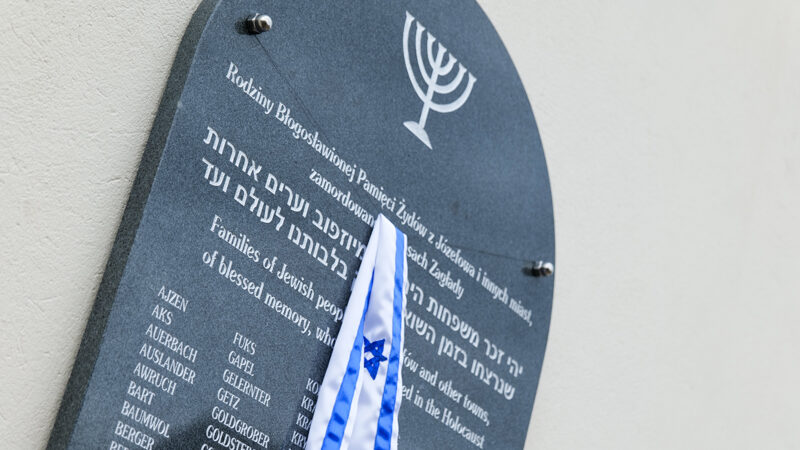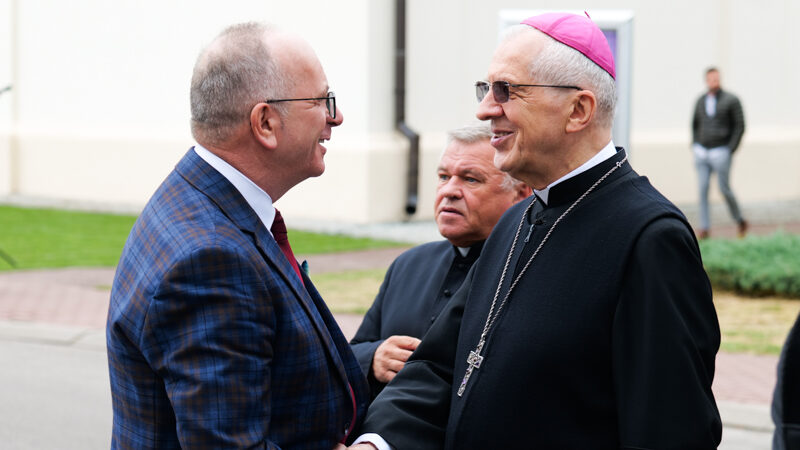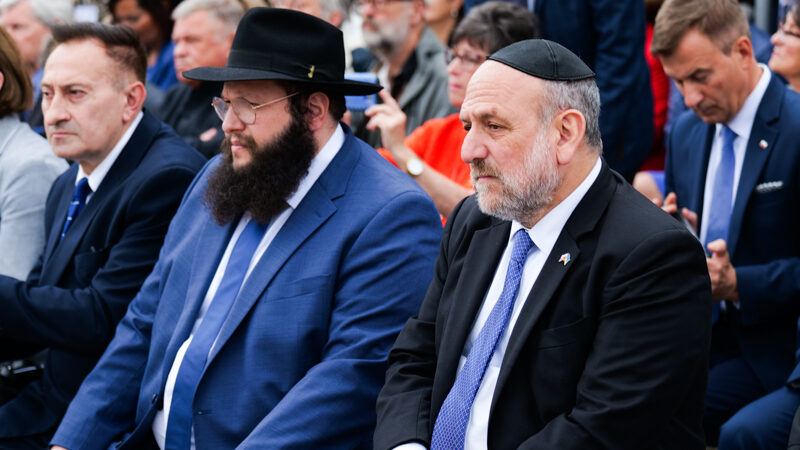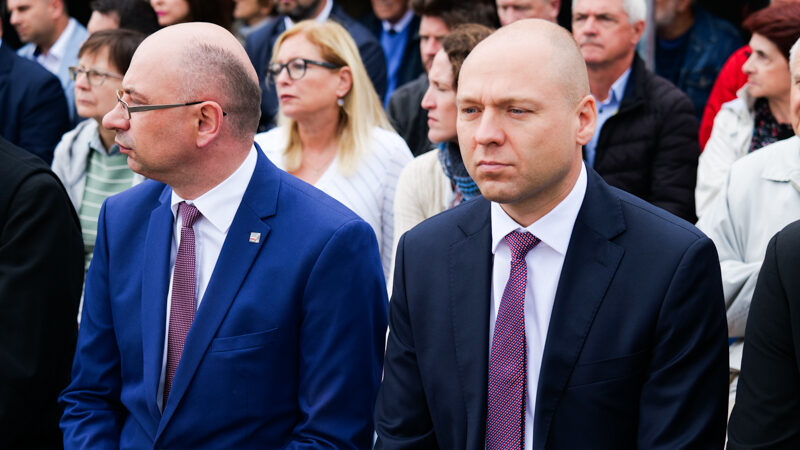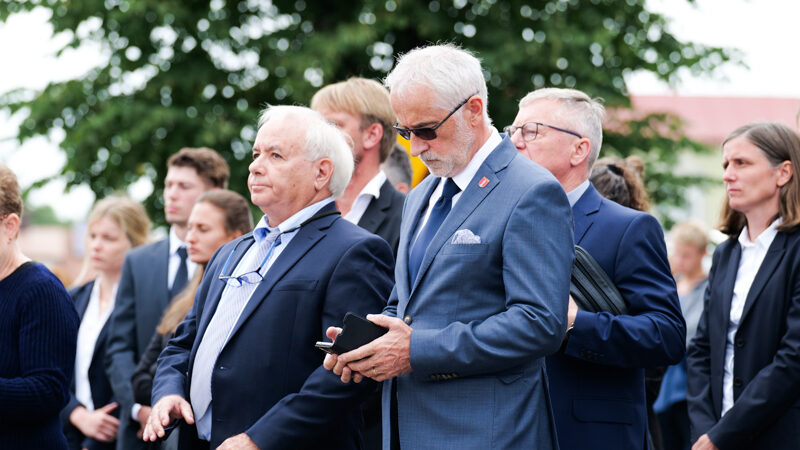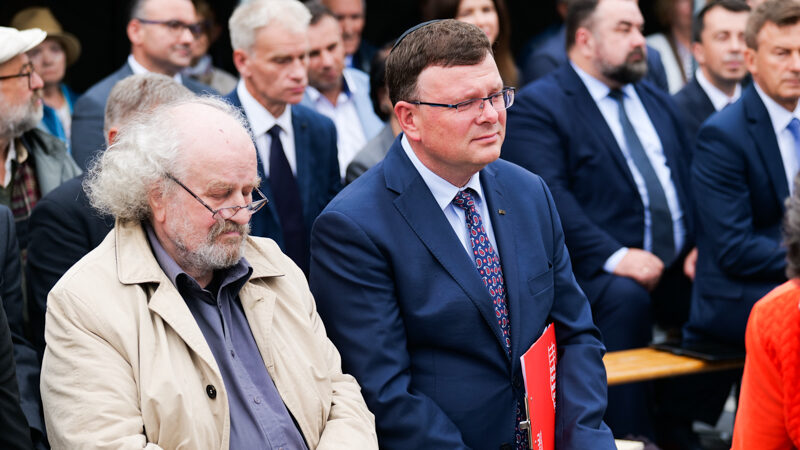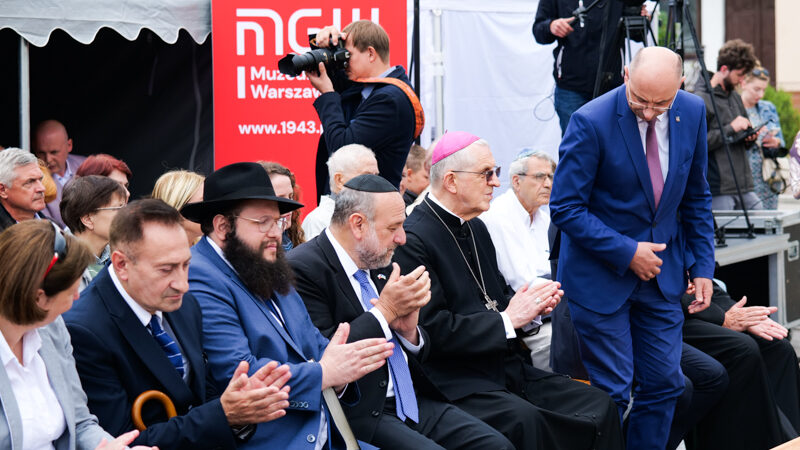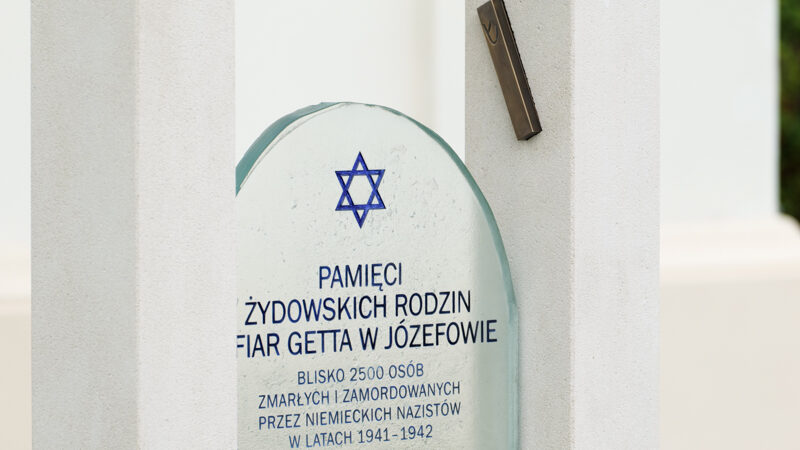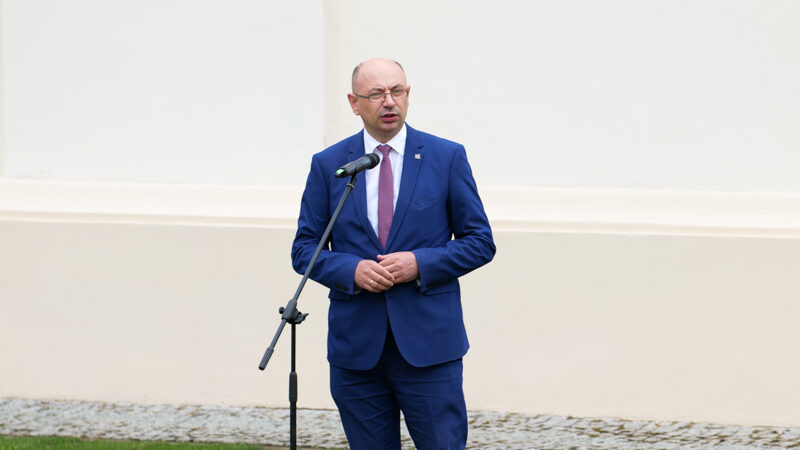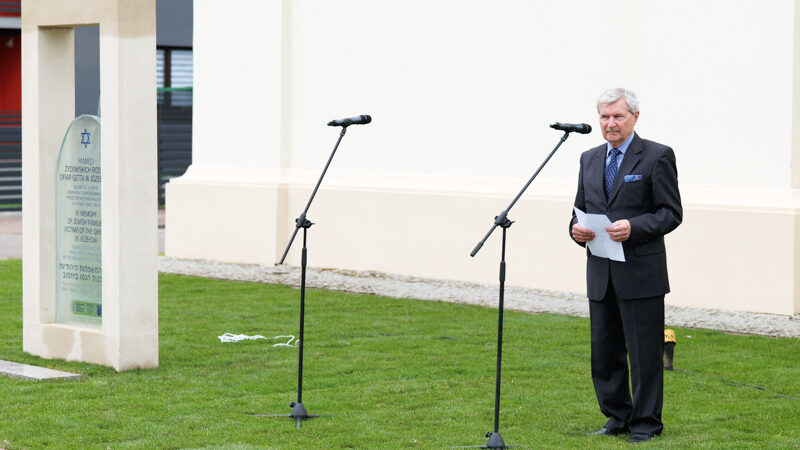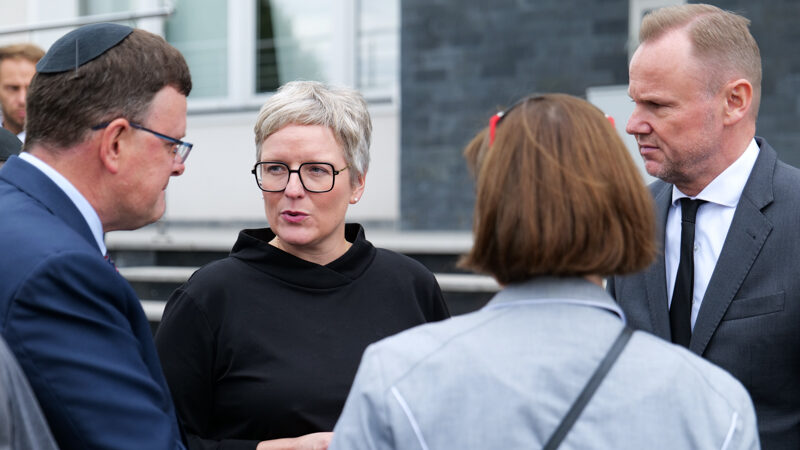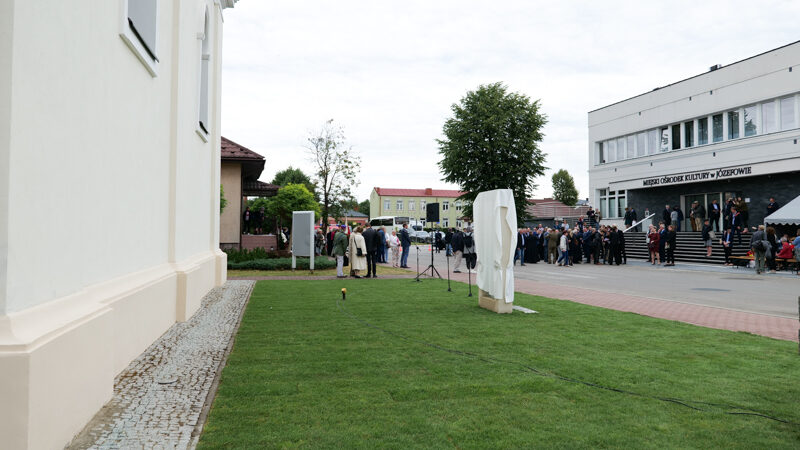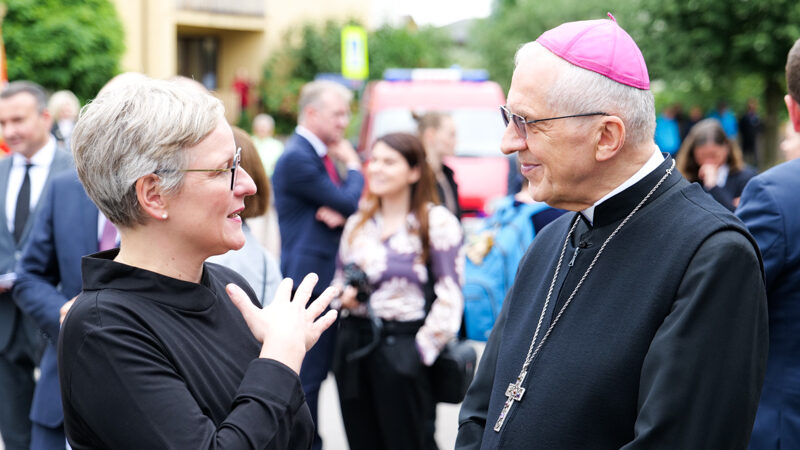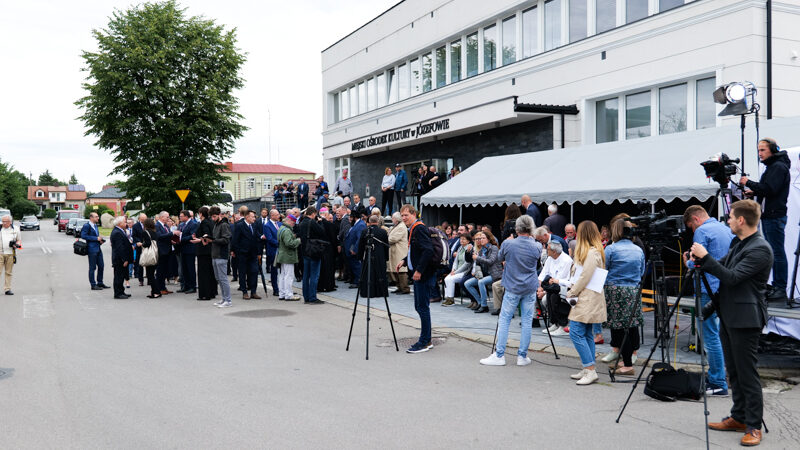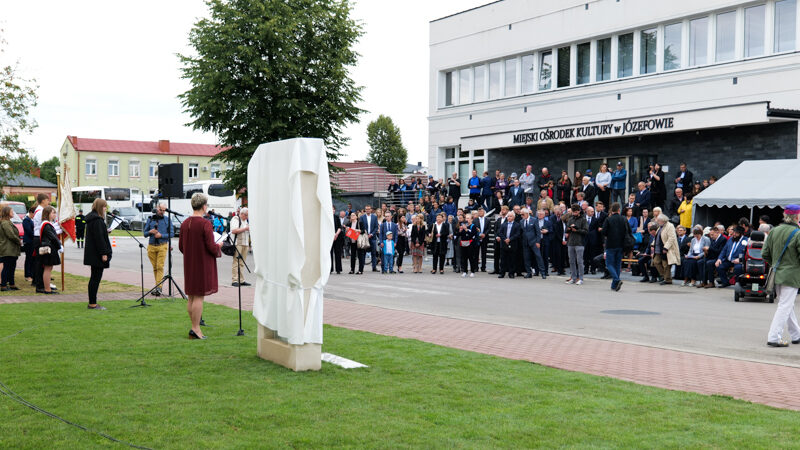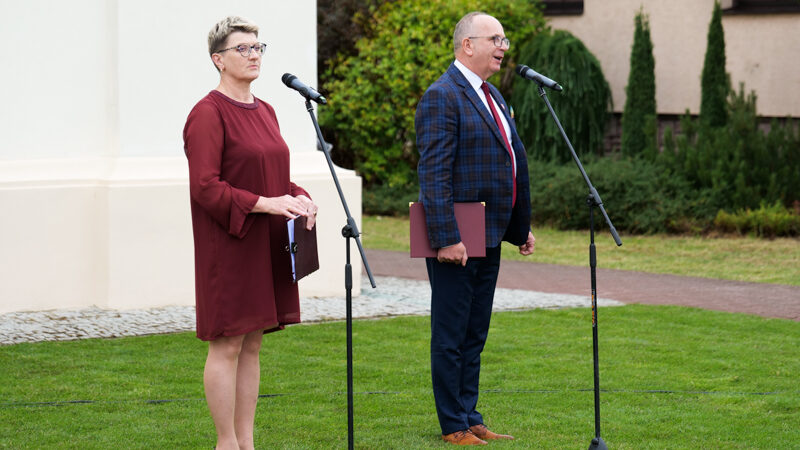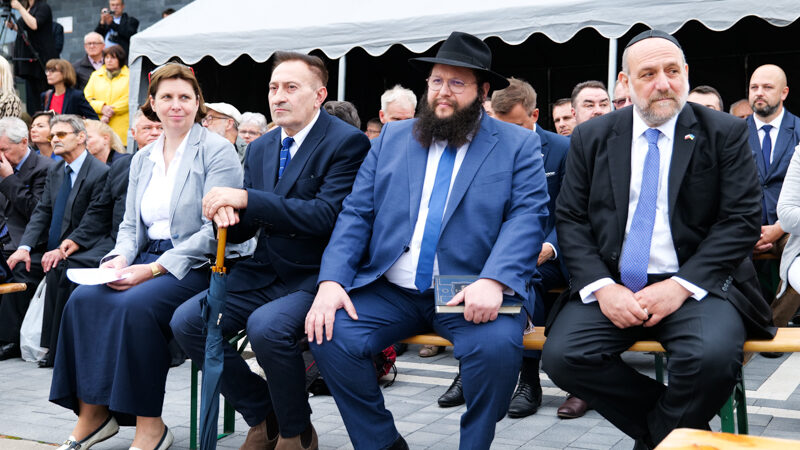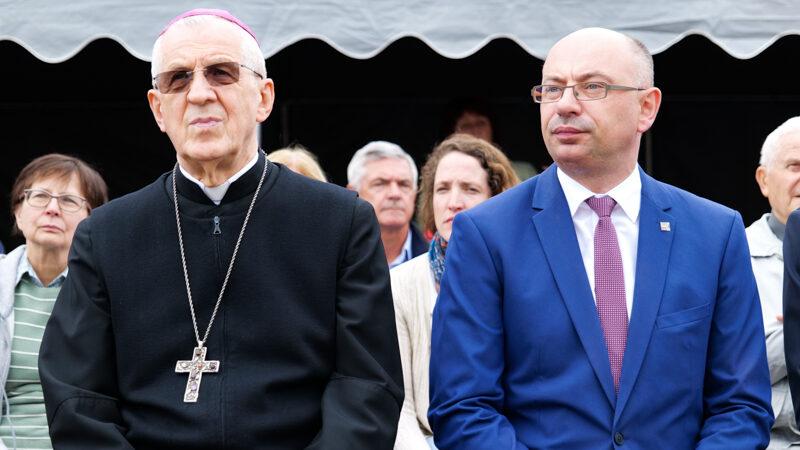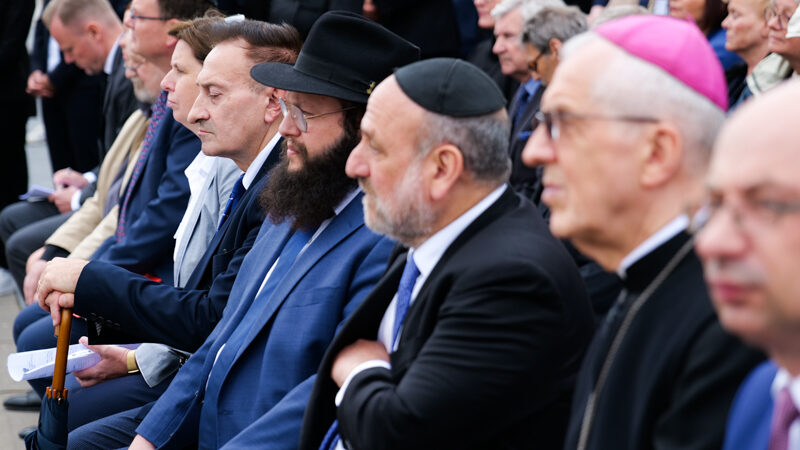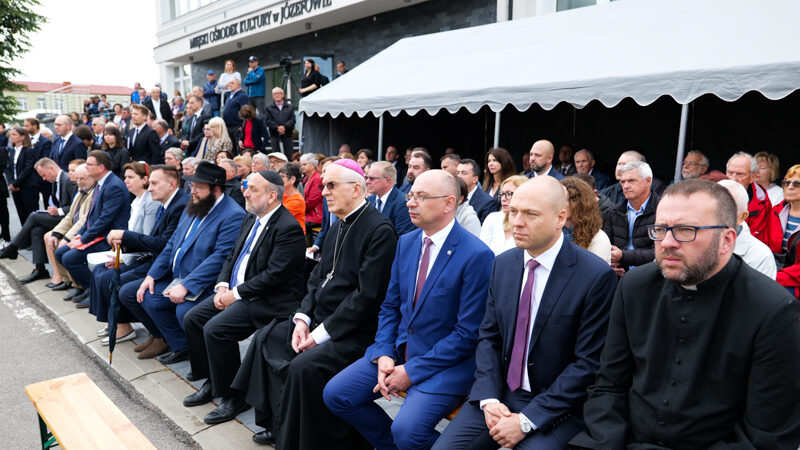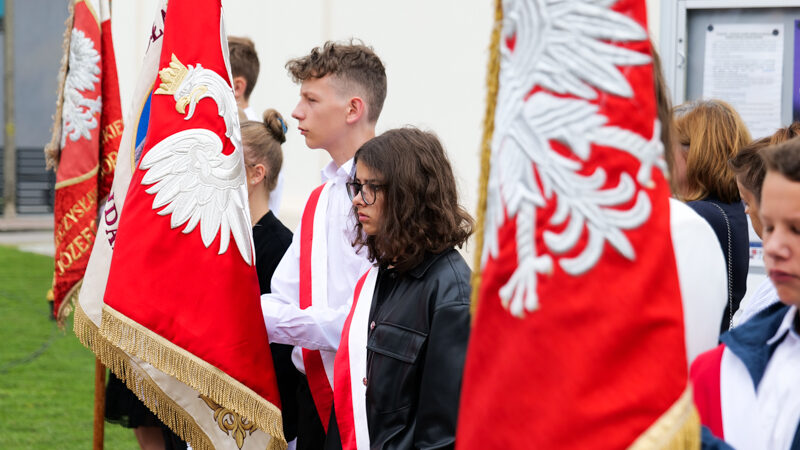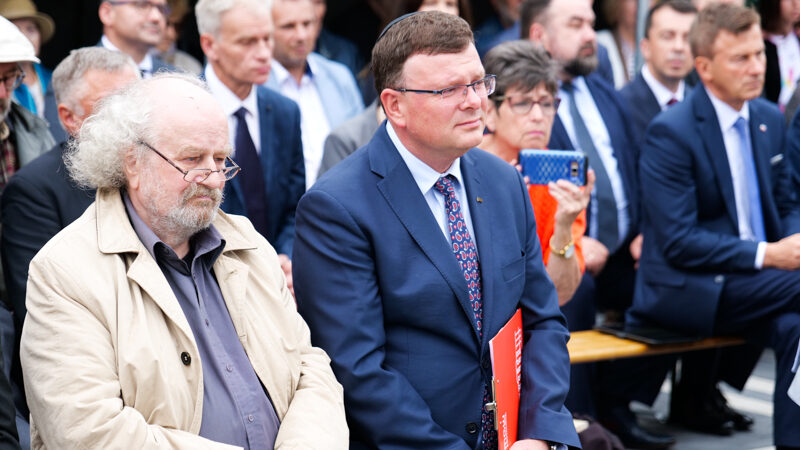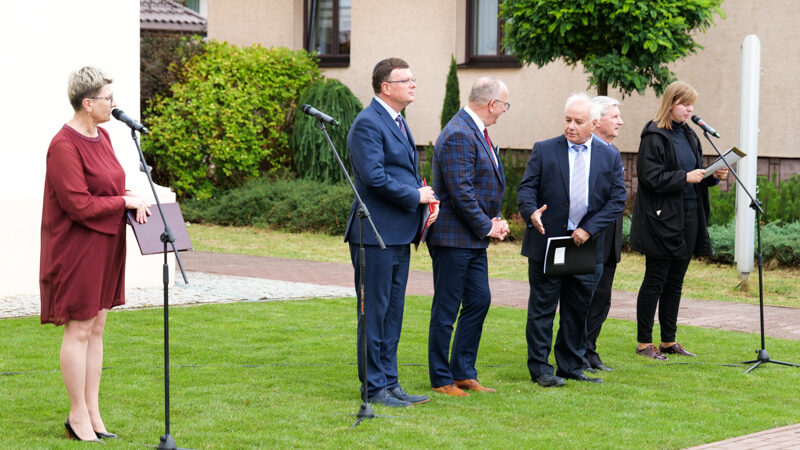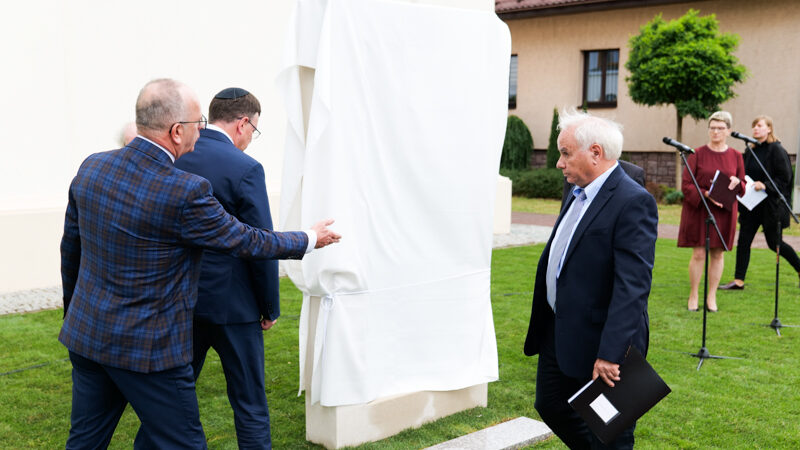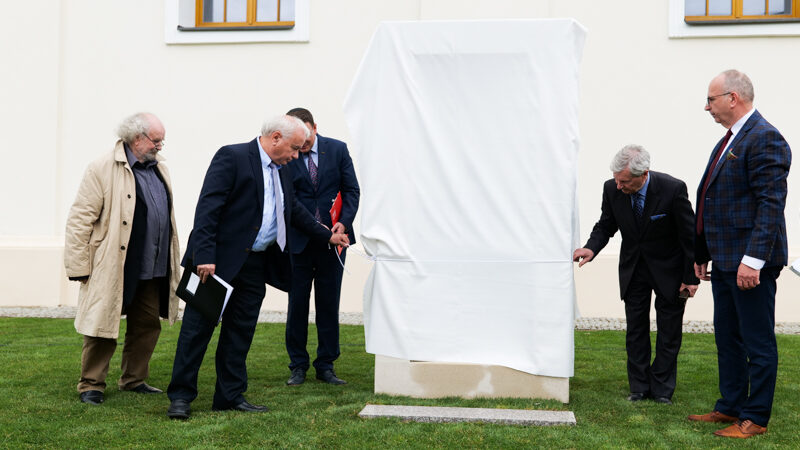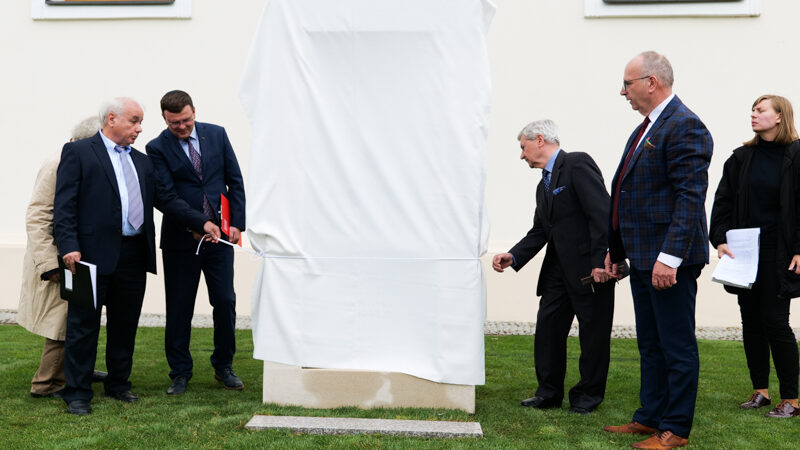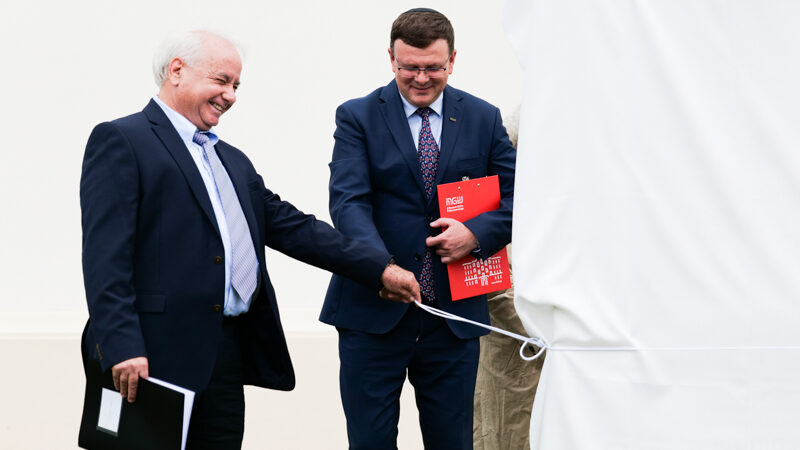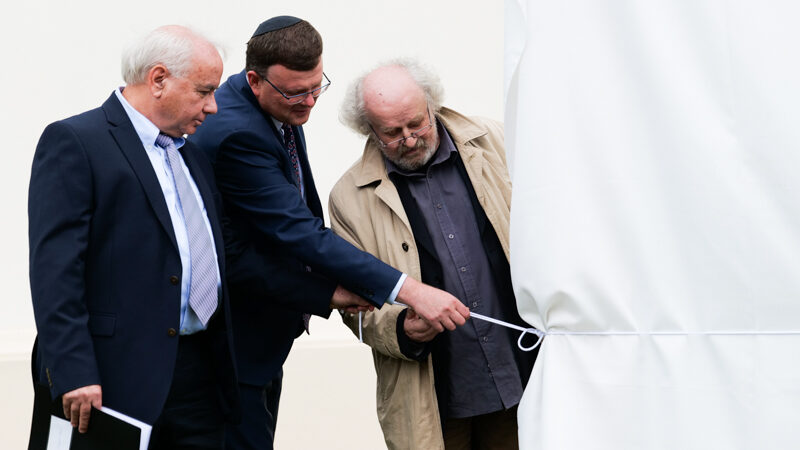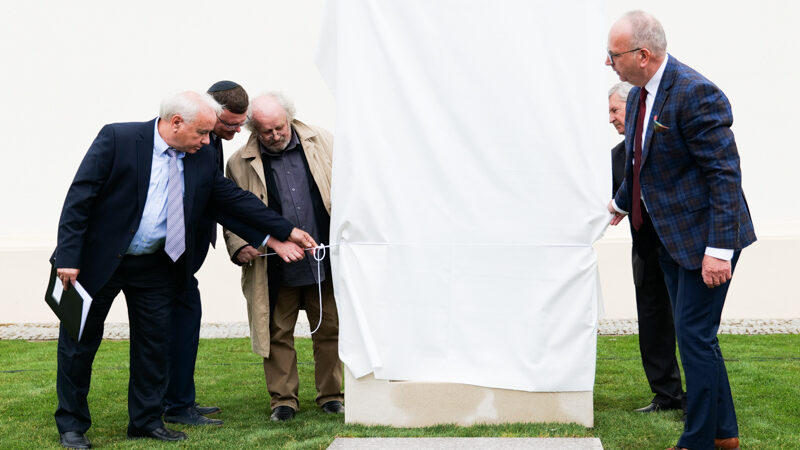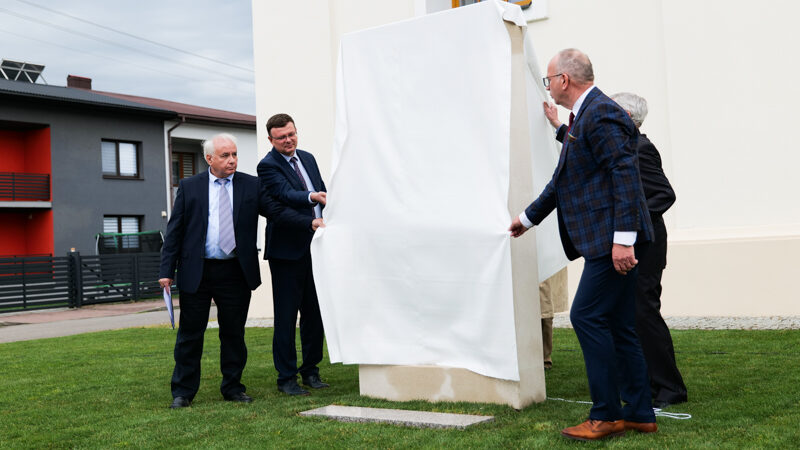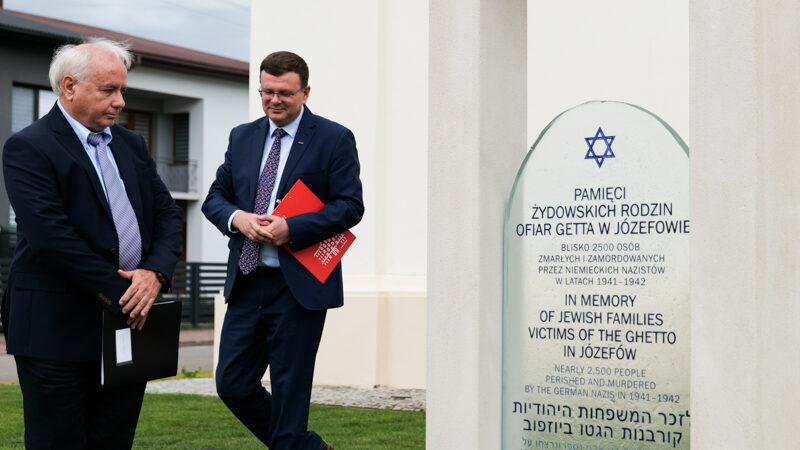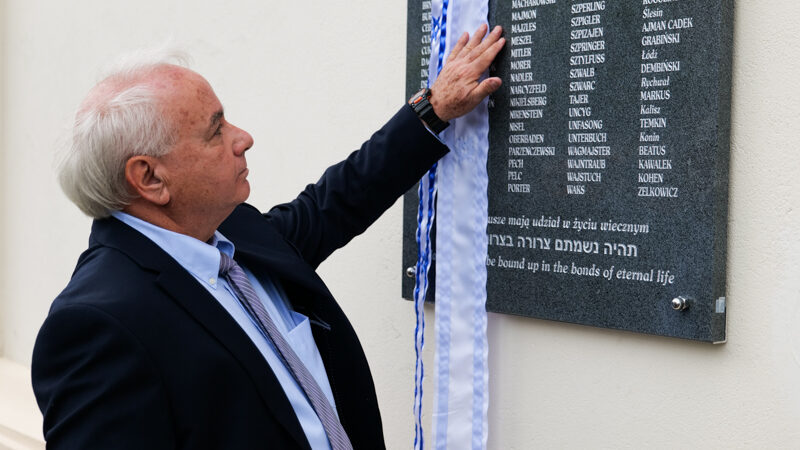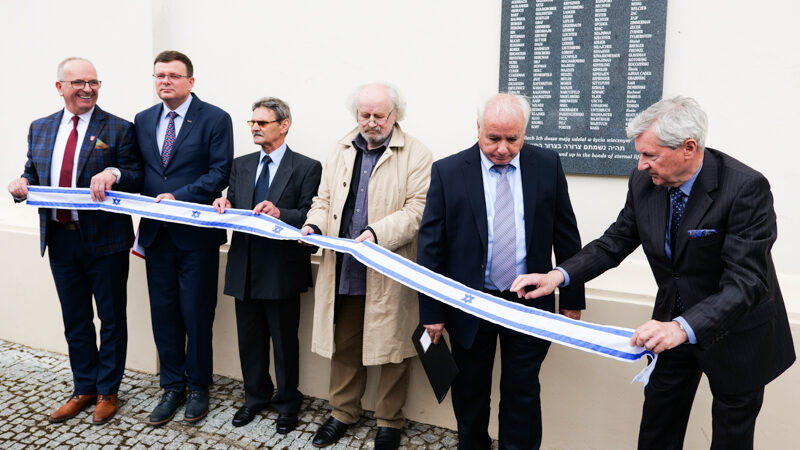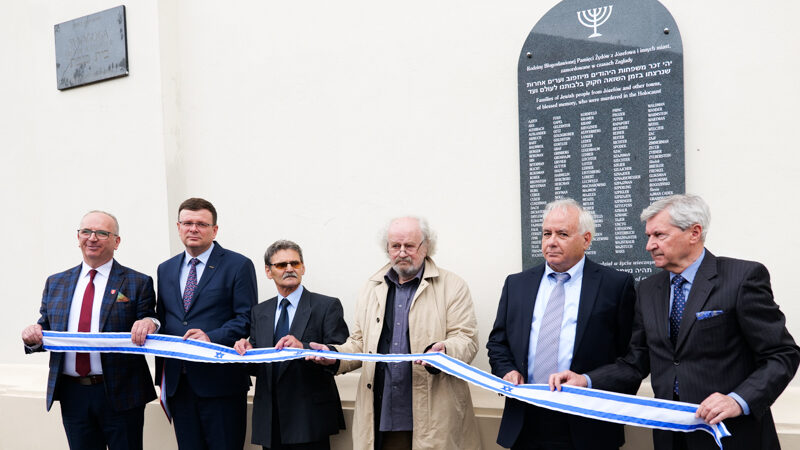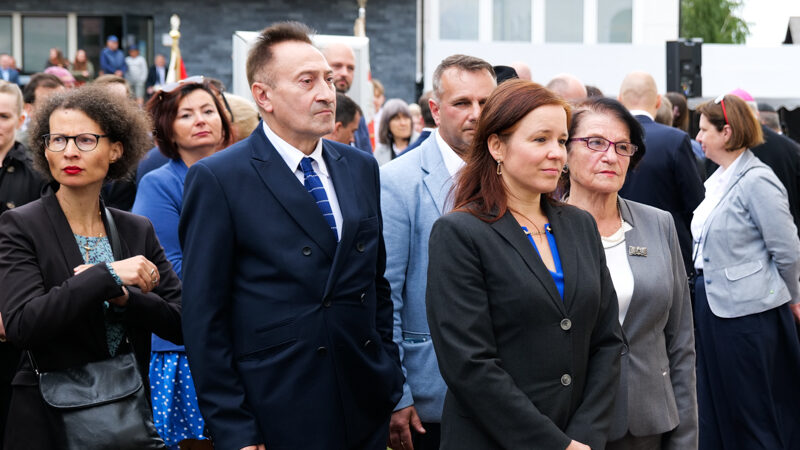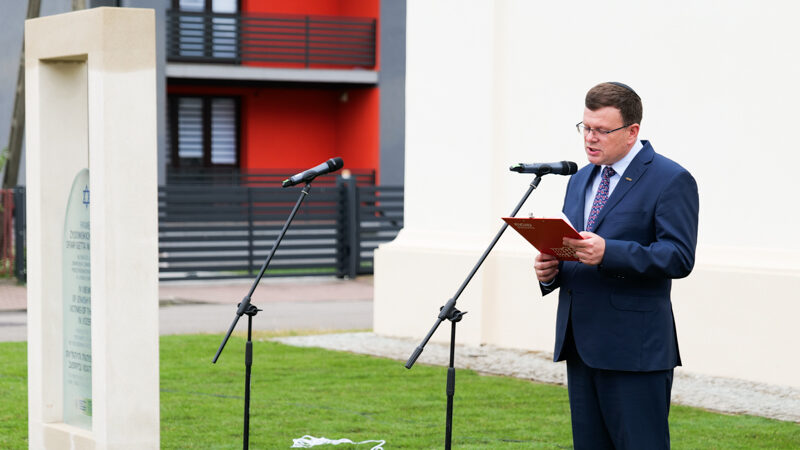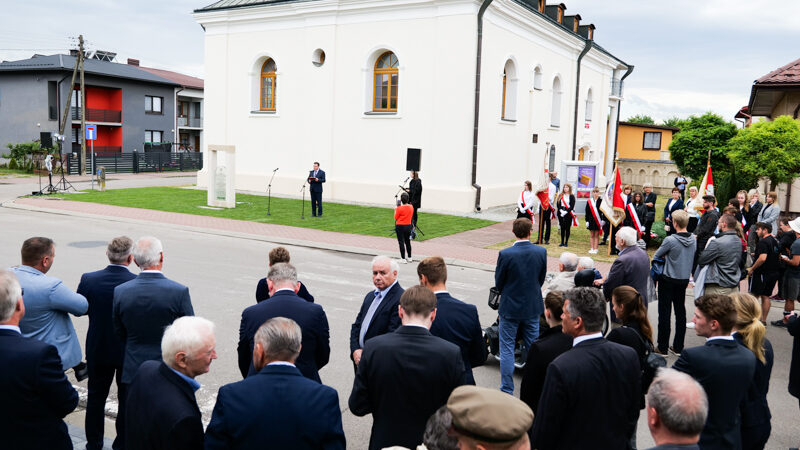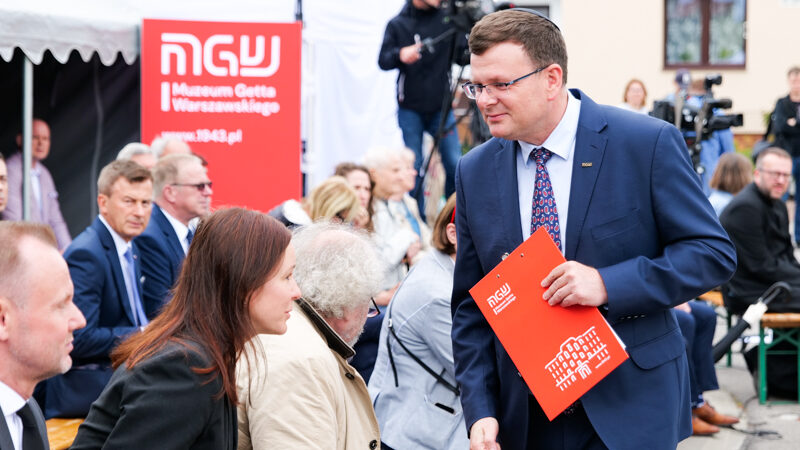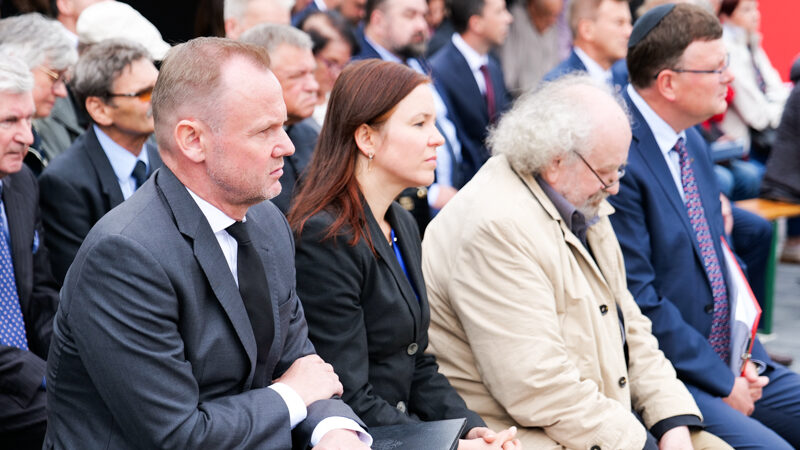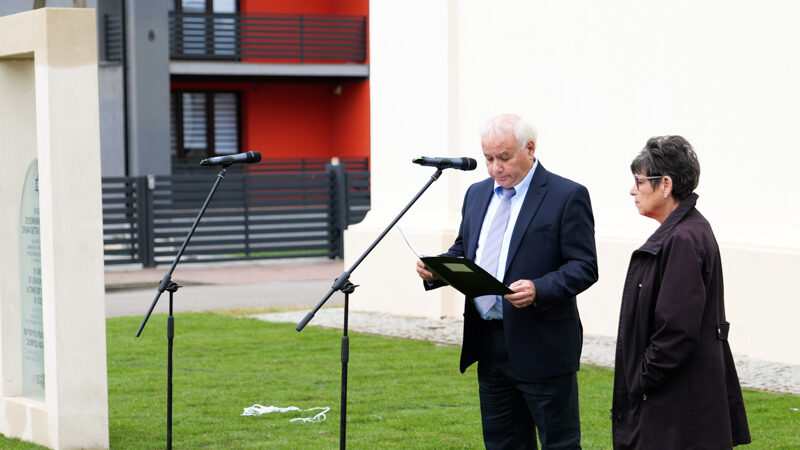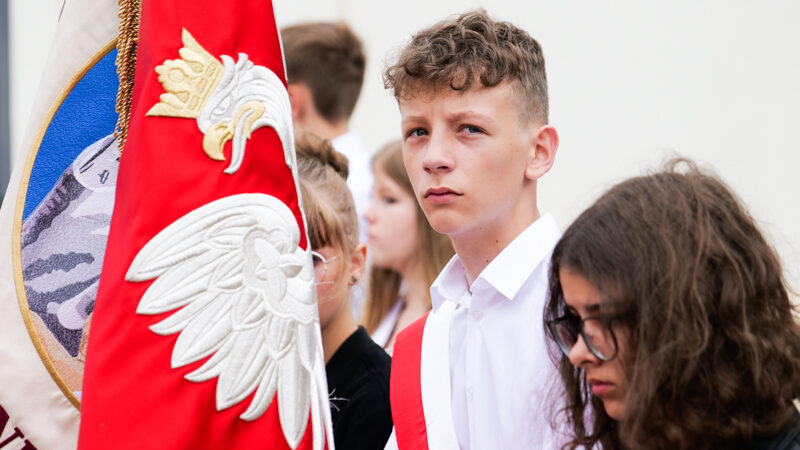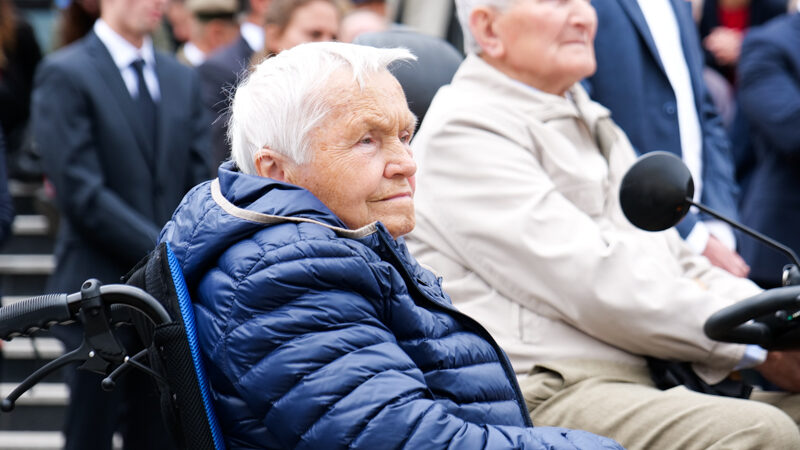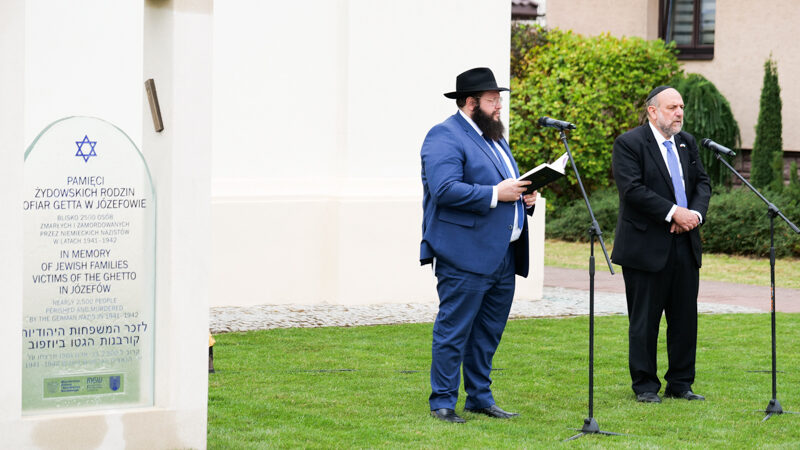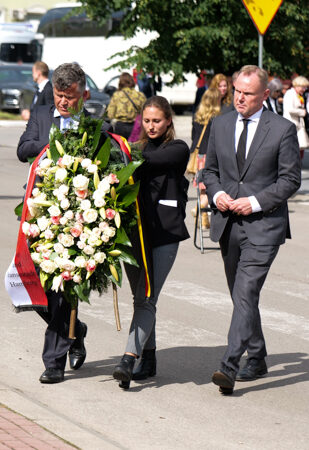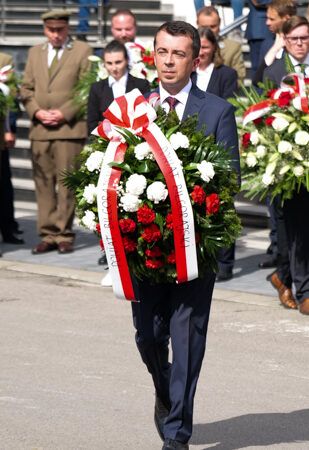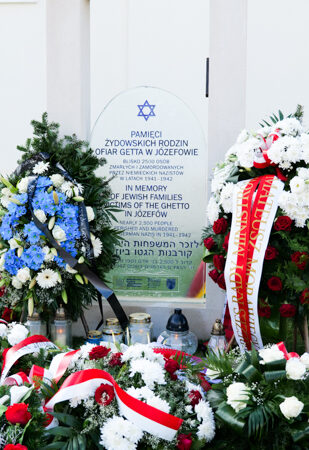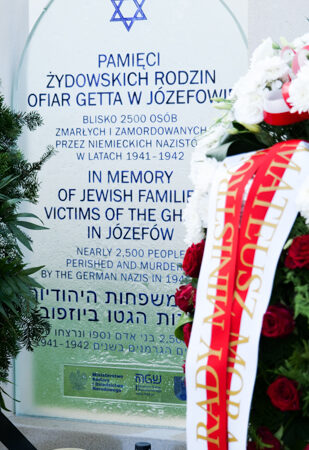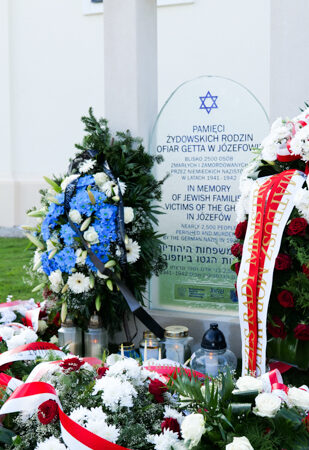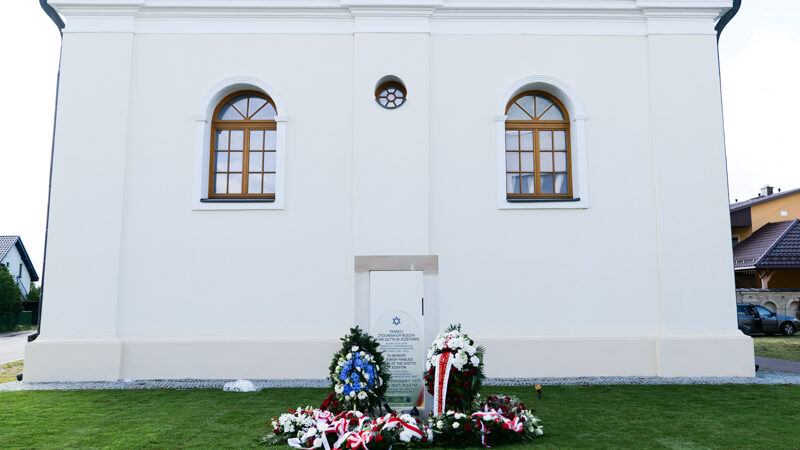The 80th Anniversary of the Holocaust in Józefów | Unveiling of the “Matzevah of Memory” monument by Jerzy Kalina
On 13 July 2022, as part of the commemoration of the 80th anniversary of “Operation Reinhardt”, an unveiling ceremony of the “Matzevah of Memory” monument by Jerzy Kalina was held in Józefów in Biłgoraj district. The project is a joint initiative of the Warsaw Ghetto Museum, the Mayor of Józefów, Roman Dziura and Paweł Byra, President of the Association of Józefów Secondary School Alumni.
The “Matzeva of Memory” is in the form of a traditional Jewish tombstone. It is made of a panel of glass, which bears a commemorative inscription in three languages: Polish, English and Hebrew. It is set in a stone frame resembling a door, made from sandstone from the quarries of the Józefów district. A reference to the tragic fate of Józefów’s Jews is the symbolic mezuzah – an elongated box that is traditionally placed in the doorway of Jewish homes on the right-hand side. Combined with the matzeva, it is meant to express the passage between the world of the living and the dead. Also, the location of the monument is not coincidental – it is situated in front of the former synagogue in Józefow, which, after restoration, now serves as the municipal library.
The author of the Matzevah of Memory monument is Polish artist Jerzy Kalina, known for his tombstone of Father Jerzy Popiełuszko and the monument to the Victims of the 2010 Smoleńsk Air Crash at Piłsudski Square in Warsaw.
The monument was unveiled by: Albert Stankowski, Director of the Warsaw Ghetto Museum; Roman Dziura, Mayor of Józefów; sculptor Jerzy Kalina; Yossi Avni from Israel, representing the families of the murdered Jews; and Paweł Byra, President of the Association of Józefów Secondary School Alumni. The ceremony of attaching the symbolic mezuzah to the Matzeva of the Memory was conducted by the Chief Rabbi of Poland, Michael Schudrich. During the ceremony, a plaque bearing the names of 194 Jewish families from Józefow, founded by the Association of Józefów Secondary School Alumni, was also unveiled on the wall of the synagogue.
The ceremony in Józefów is the outcome of successful cooperation between the Warsaw Ghetto Museum and the local authorities of Józefów. It is hoped that the unveiling ceremonies for further monuments will follow an equally satisfactory course.
The Mayor of Józefów Roman Dziura was the first to welcome the participants. Albert Stankowski, Director of the Warsaw Ghetto Museum, said in his speech, “The monument is an initiative of the residents of Józefów and a token of their reverence for the past. Today, we place it in their care, believing that in doing so we are building a bridge between the city’s past and future and contributing to building relationships that will make the world a better place. Jewish philosophy coined the term Tikkun Olam, repair of the world. I believe we are repairing it to some extent today.”
Elżbieta Witek, Speaker of the Sejm, emphasised in her speech, “The place and time of today’s ceremony have a historically symbolic dimension. Eighty years ago, thousands of people, mainly women, children and elderly people were murdered on this very ground.
Bishop Mieczyslaw Cisło together with Canon Zenon Mrugała recalled the words of Pope John Paul II about elder brothers in faith and that anti-Semitism is considered a sin in the Catholic religion.
The ceremony brought together students from local schools in Józefów, providing them with an important lesson about tragic history. Among those present were also senior citizens from the local community, who recalled with emotion the events of many years ago.
Very important guests at the ceremony were representatives of Jewish families from Józefów who now live in Israel. Yossi Avni, who comes from the Maimon family from Józefów, said in his speech, “I am here to represent my mother, Chawka daughter of Józef Herszl and Cwi Majmon and Chaia (née Bleicher), who was born and raised here (…) 80 years of memory from which it is impossible to escape. The years when we grew up without grandmothers and grandfathers, aunts and uncles who were murdered simply because they were Jewish (…). In 1989, my mother visited Józefów for the first time 50 years after her escape from the horror of war. She met the townspeople among whom she had lived for many years.”
The Chief Rabbi of Poland Michael Schudrich and Rabbi Shalom Ber Dov Stambler offered prayers. Also present at the ceremony were: Monika Krawczyk, director of the E. Ringelblum Jewish Historical Institute, and Artur Hofman, president of the Social and Cultural Association of Jews in Poland. From the Institute of National Remembrance (IPN), Vice President Dr Mateusz Szpytma and Dr Robert Derewenda, Director of the IPN Branch in Lublin, were present at the ceremony.
A large delegation from Hamburg, Germany, led by Senator Andy Grote, Minister of the Interior and Sports of the City of Hamburg, was present. In his speech, he recalled the role of the town’s policemen, who were the perpetrators of the 1942 murder of the Józefów Jews. He considers it his moral imperative to visit Józefów every year in memory of that atrocity, and as a warning against repeating it – also for the current residents of Hamburg.
The words uttered by Jarosław Kaczyński, President of the Law and Justice Party, left a strong impression on the attendees: “The synagogue building and the partially preserved Jewish cemetery are all that remains in the material sphere of the Jewish community in Józefów, which for many decades constituted the majority of its inhabitants (…) When we pay tribute to the Victims of the Holocaust, the Victims of Genocide, we hear their silent cry, which for us represents an urge to do everything in our power so that such madness of pure evil is never repeated.”
A speech delivered by Adam Struzik, Marshal of the Mazovian Voivodship, recalled the murdered: “they lived here for several generations, forming a community which could boast centuries of tradition and interesting history. They lived in Poland for centuries, experiencing with Poles all the turbulences and storms of history.
Also speaking was MP Krzysztof Grabczuk of the Polish-Israeli Parliamentary Group, who reminded the audience that the atrocities of the war still continue, close to Józefów, just across the Polish-Ukrainian border.
The local and national media were also represented extensively at the ceremony in Józefów and produced a number of TV and radio reports and press publications.
In his speech, the Director of the Warsaw Ghetto Museum Albert Stankowski outlined further commemoration plans: One of the objectives of the Warsaw Ghetto Museum is to cultivate the memory of the Holocaust that was happening in the ghettos of occupied Poland. The unveiling of the monument to the Jews of Józefów is one of the steps towards achieving this goal. This is the first of many Matzevot of Memory, works by the eminent Polish artist Jerzy Kalina, to be erected by the Warsaw Ghetto Museum in cooperation with the Institute of National Remembrance in former shtetls – Jewish towns of which only memory remains.


